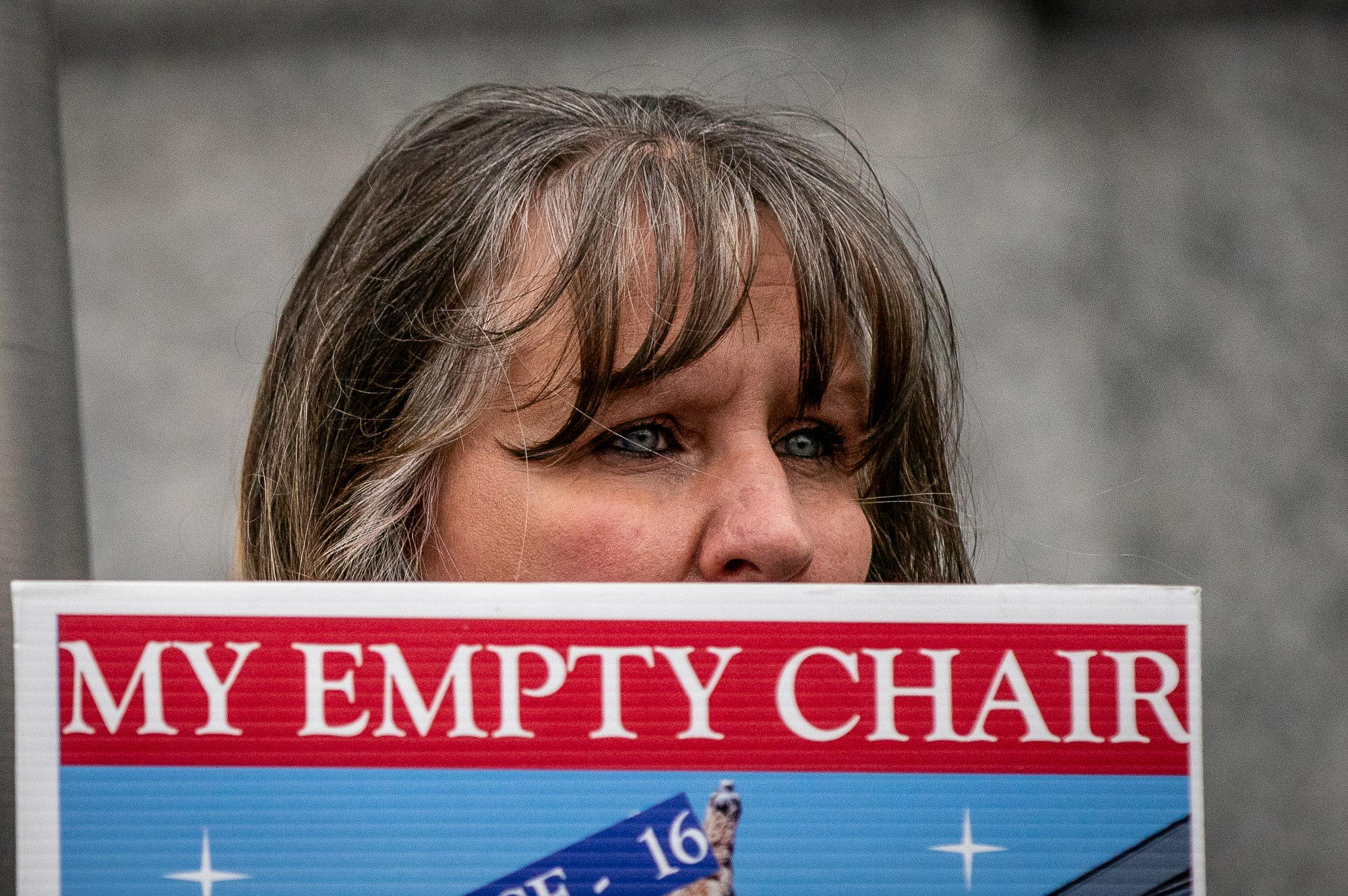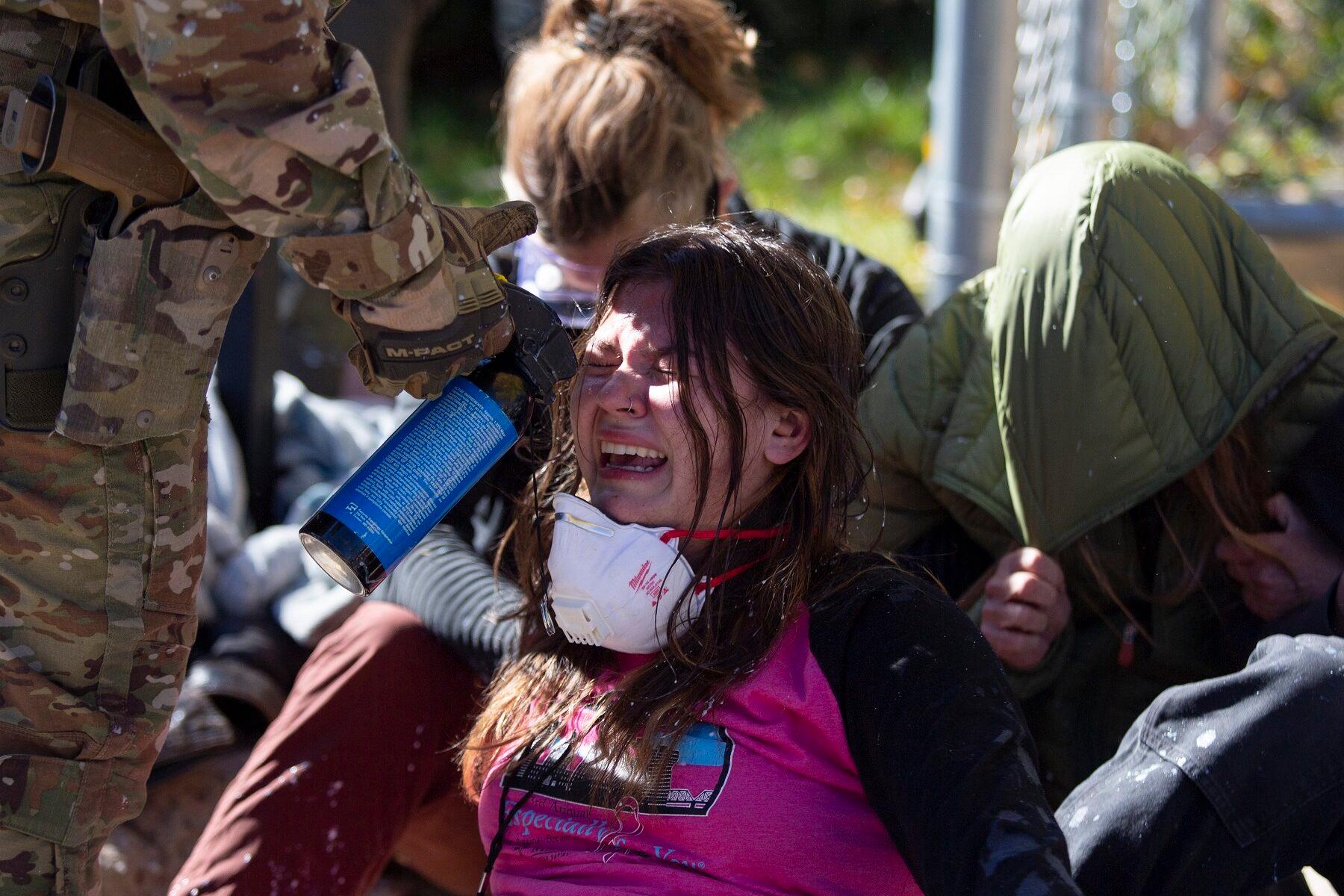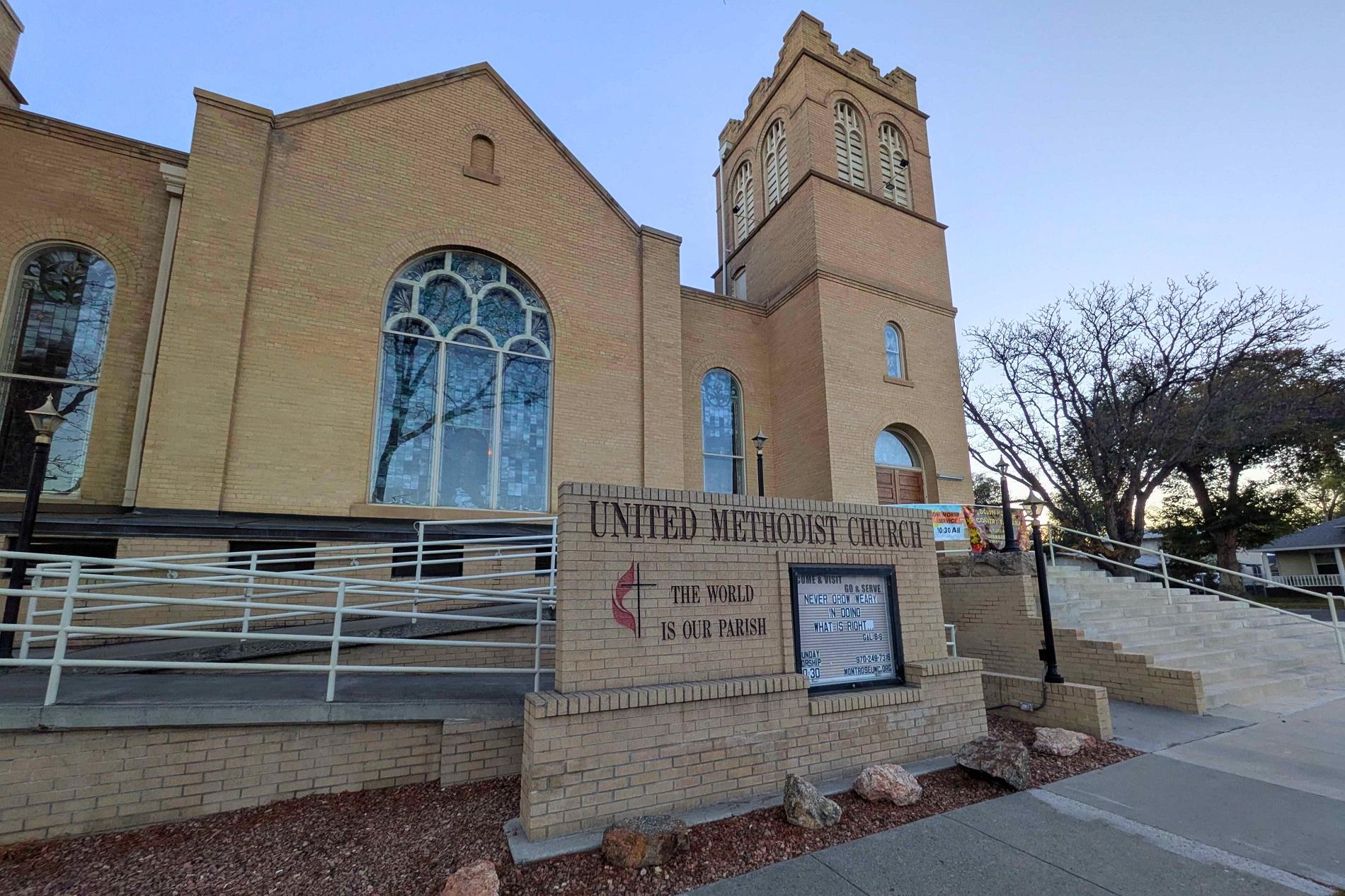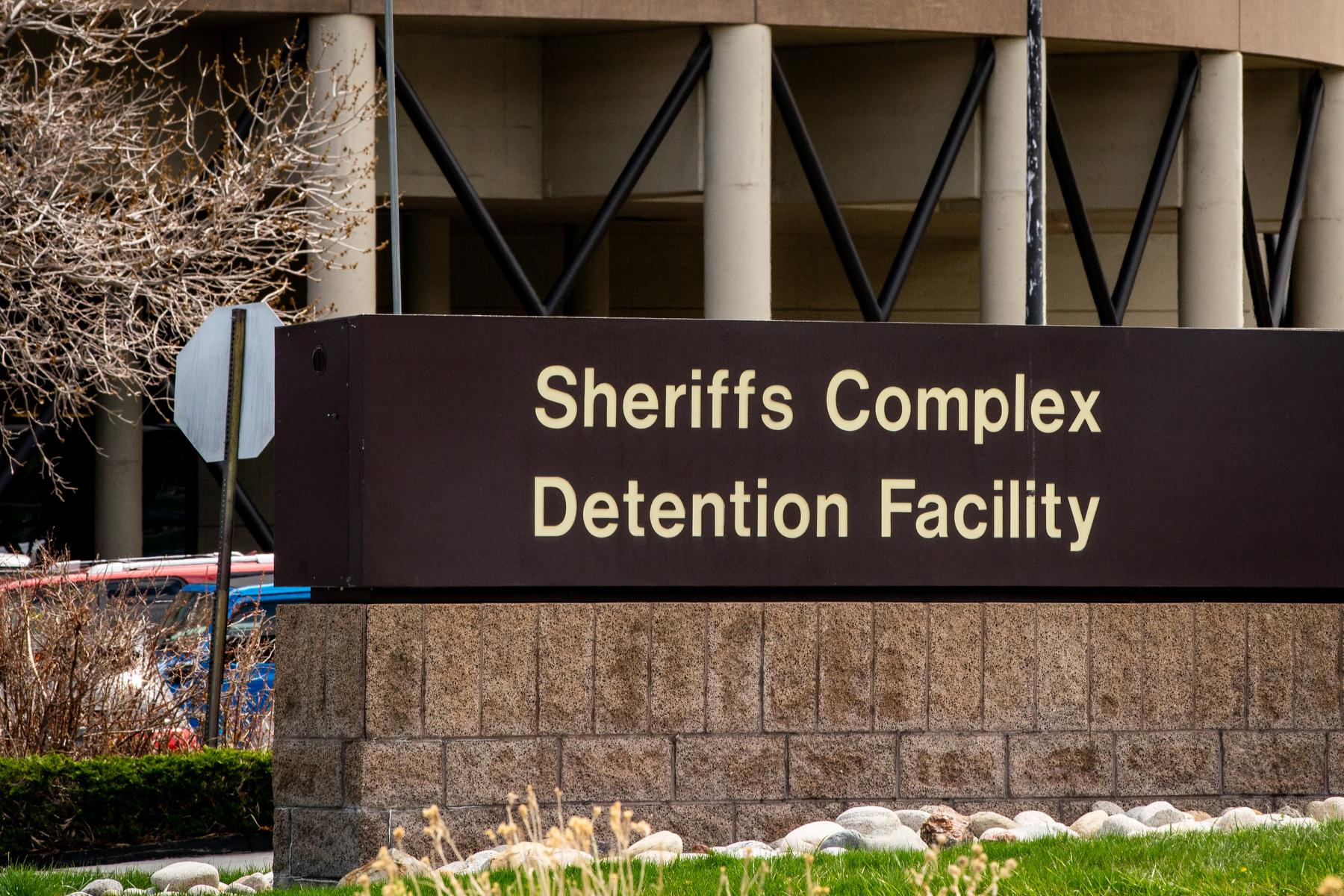
A new Colorado state law took effect in 2024, requiring all county jails to offer in-person voting for eligible individuals. During that year’s general election, more than 2,300 Coloradans voted from jail, a dramatic increase over previous years. In Jefferson County, that number rose from just three people casting ballots in 2022 to more than 300 in 2024.
Ahead of Nov. 4, Election Day 2025 in Colorado, Jefferson County Clerk and Recorder Amanda Gonzalez spoke with Colorado Matters Host Chandra Thomas Whitfield about what her team learned from this experience, how it worked, and what it means for democracy in Colorado.
This interview has been lightly edited for clarity and length.
Chandra Thomas Whitfield: There seems to still be a lot of confusion about voting eligibility. Can you clarify who can and cannot vote in Colorado if they have been involved with the criminal justice system?
Amanda Gonzalez: In Colorado, you may vote as long as you're 18 years old, you're a resident of Colorado, you're a U.S. citizen. The only folks who are not able to vote because of involvement with our criminal justice system are people who are currently serving a term of confinement for a felony conviction. So if you are somebody that is on probation, if you're on parole, if you've finished your sentence and you're back out in your community, or if you are in a county jail because you are awaiting trial, meaning you haven't been convicted of anything yet, or if you are serving time for a misdemeanor conviction, you are eligible to vote.
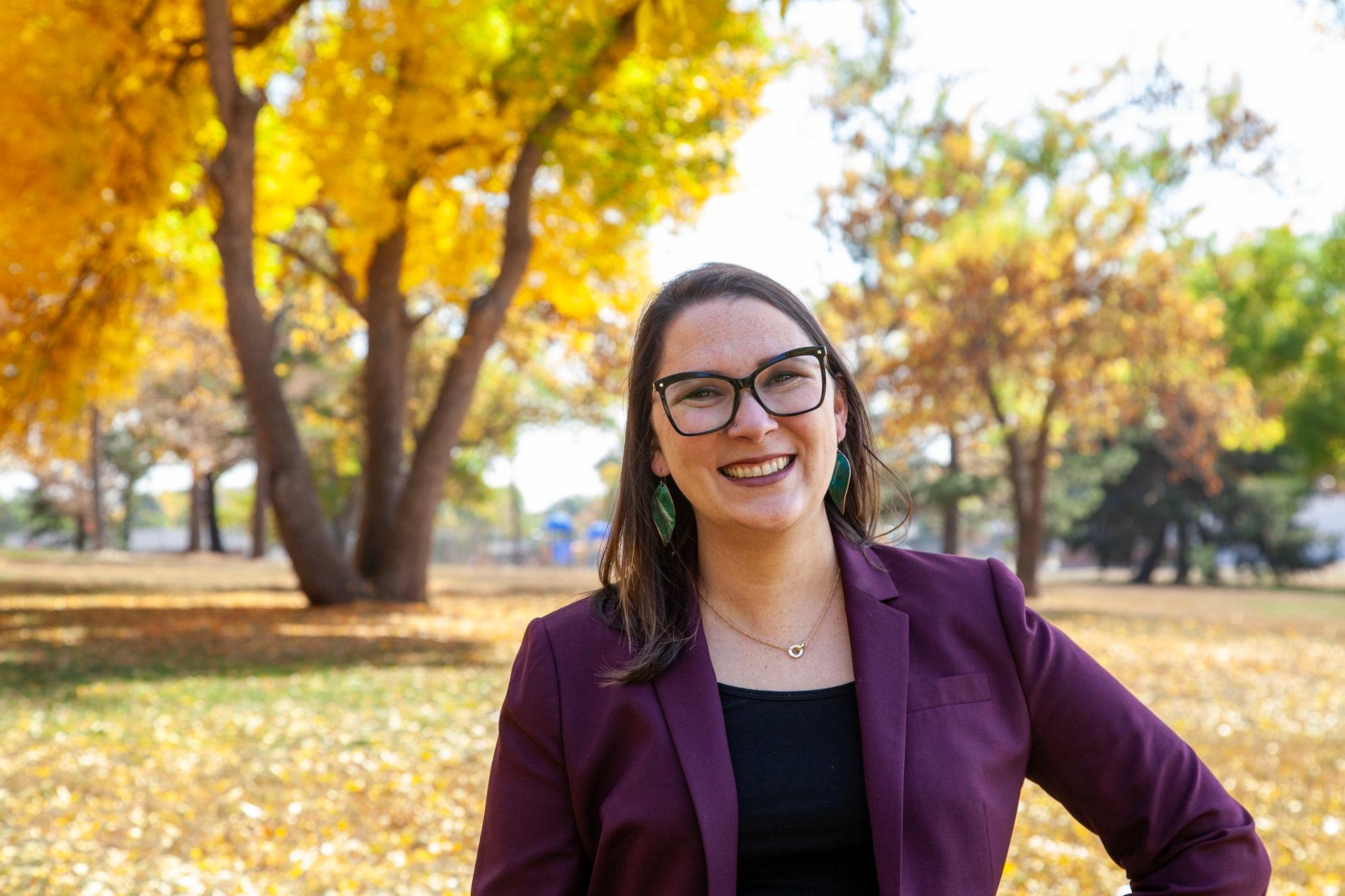
Thomas Whitfield: Bring us back to Election Day 2024 here in Colorado. What was your office’s approach in Jefferson County to implementing Senate Bill 2472 and how did things play out?
Gonzalez: This was such an exciting year because of course we know from the history of civil rights in this country that having the right to vote is fundamentally different from actually being able to cast your ballot. And that was exactly the case in Colorado and probably a lot of places throughout the country. We want every single eligible voter to be able to cast their ballot.
In 2022, only three people from the Jefferson County Jail actually cast their ballot. So 2024 felt particularly important and we were working with our county sheriff and also working with nonprofits throughout the state, in particular, the Colorado Criminal Justice Reform Coalition, about how to make these numbers better. How do we make sure that more people are actually able to cast their ballot? A key piece of that was in-person voting, having a vote center in a county jail where people who are incarcerated there are able to talk to election officials, talk to election administrators, ask their questions about eligibility, in some cases register and cast their ballot. And so we brought that number up from just three in 2022, which is just unacceptable, up to over 300 last year, which was so exciting. Every step that we get that is closer to ever eligible voter voting, is a really, really good thing.
Thomas Whitfield: What were some of the logistical challenges of implementing in-jail voting, and how did you address them?
Gonzalez: Every time you are bringing on a new process or protocol, you have to be really thoughtful about it. And I will say that it was really great to have the partnership of the Jefferson County Sheriff's Department. There were employees and deputies in that department that were incredibly helpful and the clerk and recorder's office really brings in the expertise of how to run elections and make sure that people are able to cast their ballot the legally compliant way. We did work really closely with the sheriff's office to make sure that anybody that was coming into the jail to administer the election knew all of the safety protocols, working closely so that everything went smoothly and it went really, really great.
Thomas Whitfield: Was there a particular story from that experience that stood out to you?
Gonzalez: Yeah, this was such a meaningful day. There was a voter that we got a chance to speak with . He said he was 29 years old and he had never voted before. He wasn't sure if he was eligible, but because we were there, he came and asked questions about voting. He asked questions about his eligibility. He was eligible to vote and so he voted for the first time in his life. And he said it was one of the top five experiences of his life. It was just one of those really wonderful days where you're like, this is why we do this work; because we want to make sure that everyone's voice is heard.
Thomas Whitfield: Looking ahead, what did you and your team learn from this first full implementation, and what are your key takeaways for future elections?
Gonzalez: I think we saw exactly what we expected. When people understand their rights, when they understand how to vote, they turn out and vote. And I think that we see that throughout Colorado, not only with folks that are voting from a county jail, but throughout Colorado. At every step we have tried to make it as convenient as possible, making sure that it's convenient to vote and that your ability to vote doesn't hinge on your life circumstances. We don't want people not to vote because they're busy. We don't want people not to vote because they're taking care of their kids and they can't get to one place on a Tuesday. We want to make it really accessible for all eligible voters.
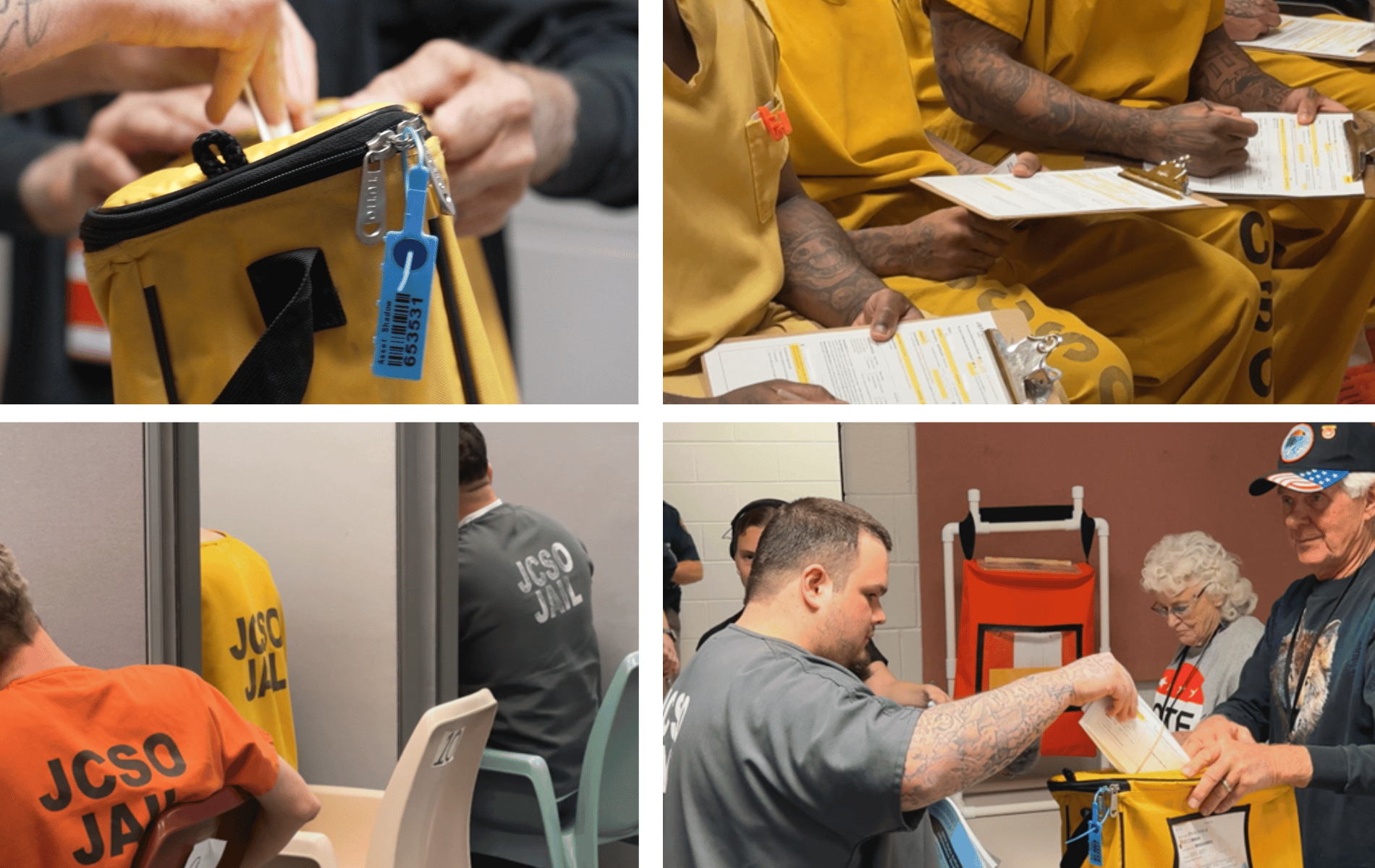
Thomas Whitfield: Given the results, what do you believe this program signals for democracy and inclusion in our state?
Gonzalez: Those numbers are tremendous and hopefully they are just the start. I think we saw something like more than an 800 percent increase over 2022, which is just so exciting. And what that tells us is that people want to vote. People want to have their voices heard. And so hopefully we can just continue to build a culture of voting and an understanding of eligibility.
Thomas Whitfield: For those who want to help, how can Coloradans get involved in supporting access to voting?
Gonzalez: So the first thing that you can do obviously, is if you are eligible to vote, make sure that you are registered at your current address and you are participating in our democracy. You are casting that ballot. Voting makes you a good citizen, but voting in your local election makes you a really good neighbor. If you want to take it one step further, it is always amazing for people to sign up to be election judges or poll workers. You can do that at your county clerk's website. You can express interest and apply there.
Thomas Whitfield: In terms of supporting voting among those currently involved in the criminal justice system in the state, what do people need to know?
Gonzalez: Perhaps you or a loved one have some criminal justice stuff in your background. Maybe you have a prior conviction or friend and family does; make sure that they know their rights. If you are on probation, if you're on parole, if you're done with your sentence and you're back out in your community, if you're awaiting trial or if you are serving time for a misdemeanor, you are eligible to vote.
Editor’s note: Clerk Amanda Gonzalez is currently serving as Jefferson County Clerk and Recorder. She has also announced plans to run for Colorado Secretary of State in 2026.

